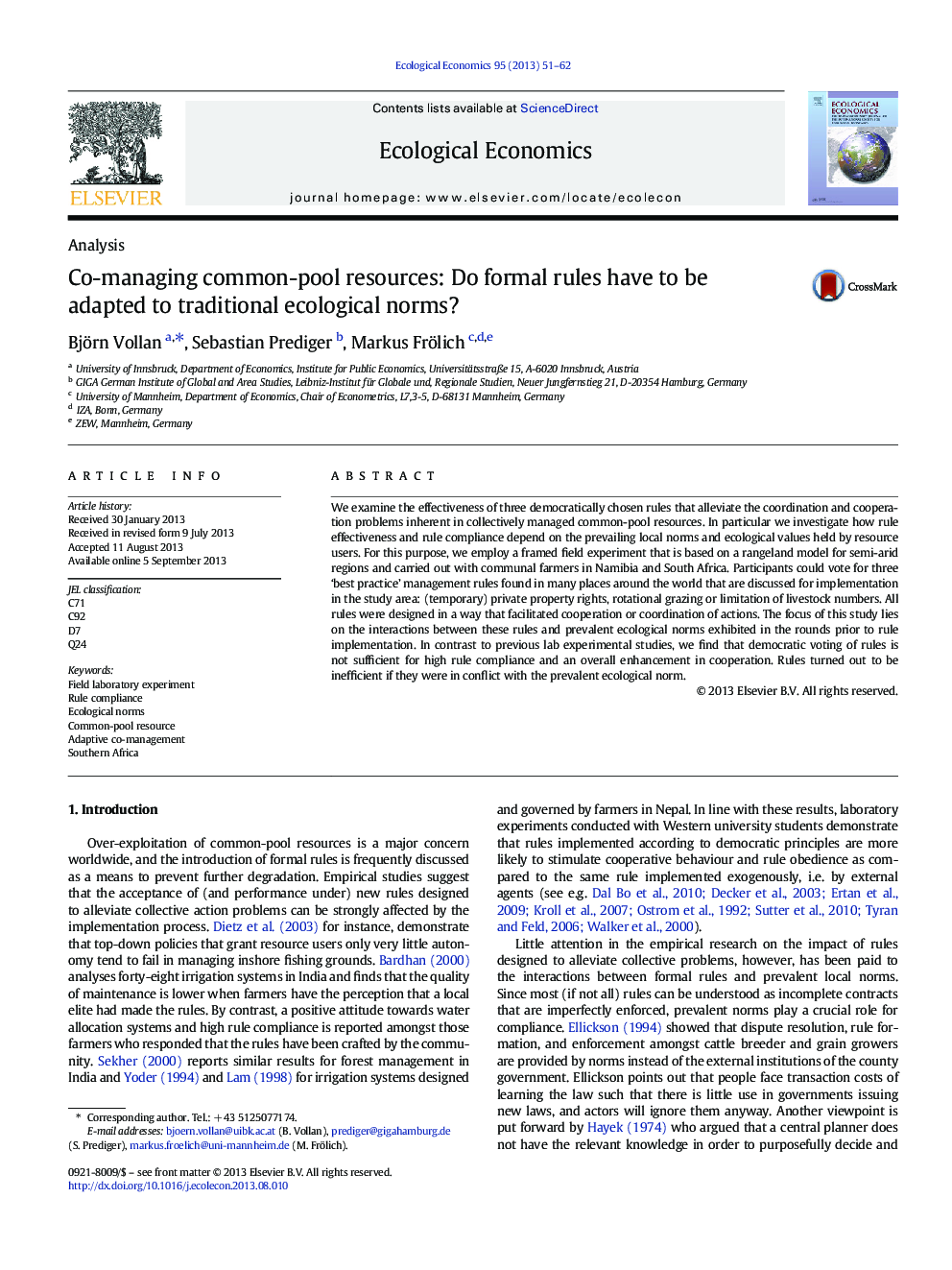| کد مقاله | کد نشریه | سال انتشار | مقاله انگلیسی | نسخه تمام متن |
|---|---|---|---|---|
| 5049782 | 1476384 | 2013 | 12 صفحه PDF | دانلود رایگان |
- We apply lab-in-the-field experiment on voting for institutions in southern Africa.
- Groups managing their resource well without rules are high sustainability groups.
- Albeit unpopular, quota rule was successful in high and low sustainability groups.
- High sustainability groups neglect newly voted rules and adhere to the prior norm.
- Our study provides evidence for the need of adaptive co-management.
We examine the effectiveness of three democratically chosen rules that alleviate the coordination and cooperation problems inherent in collectively managed common-pool resources. In particular we investigate how rule effectiveness and rule compliance depend on the prevailing local norms and ecological values held by resource users. For this purpose, we employ a framed field experiment that is based on a rangeland model for semi-arid regions and carried out with communal farmers in Namibia and South Africa. Participants could vote for three 'best practice' management rules found in many places around the world that are discussed for implementation in the study area: (temporary) private property rights, rotational grazing or limitation of livestock numbers. All rules were designed in a way that facilitated cooperation or coordination of actions. The focus of this study lies on the interactions between these rules and prevalent ecological norms exhibited in the rounds prior to rule implementation. In contrast to previous lab experimental studies, we find that democratic voting of rules is not sufficient for high rule compliance and an overall enhancement in cooperation. Rules turned out to be inefficient if they were in conflict with the prevalent ecological norm.
Journal: Ecological Economics - Volume 95, November 2013, Pages 51-62
